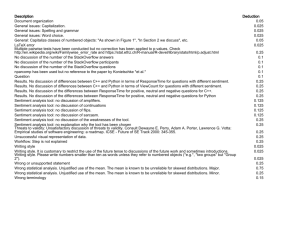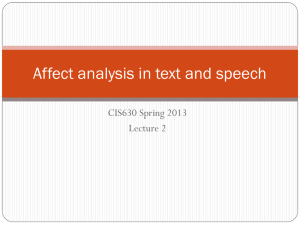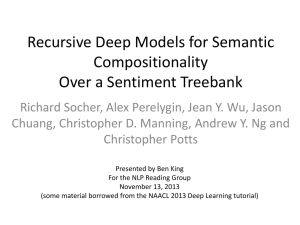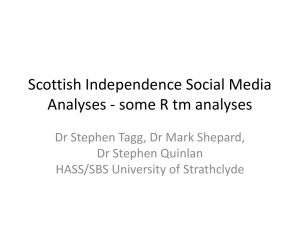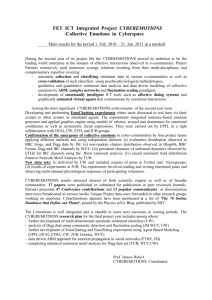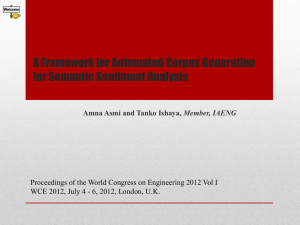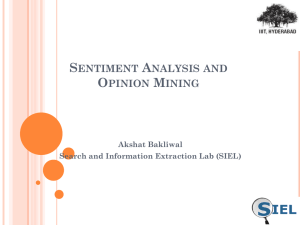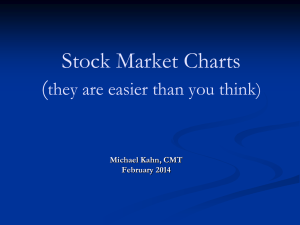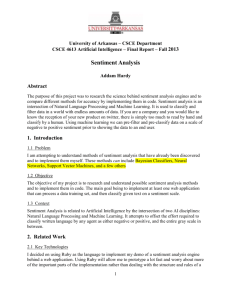Slides - Q Group
advertisement
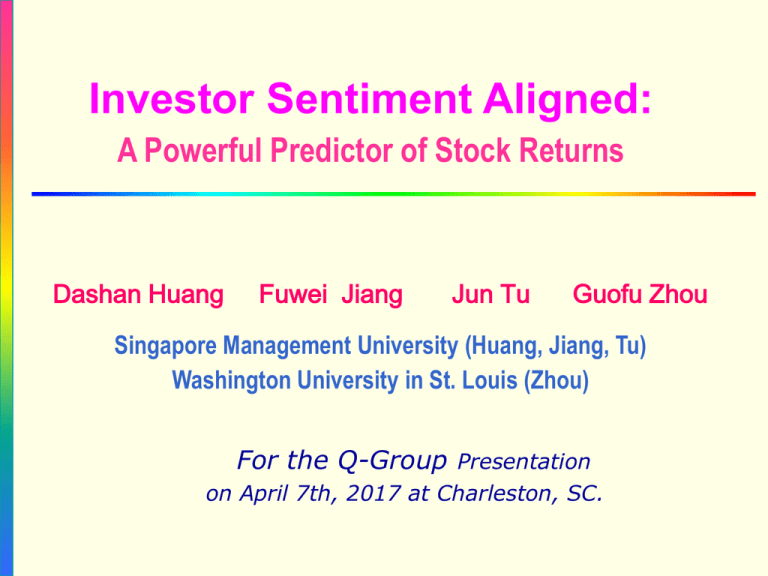
Investor Sentiment Aligned: A Powerful Predictor of Stock Returns Dashan Huang Fuwei Jiang Jun Tu Guofu Zhou Singapore Management University (Huang, Jiang, Tu) Washington University in St. Louis (Zhou) For the Q-Group Presentation on April 7th, 2017 at Charleston, SC. Sentiment and Stock Returns Sentiment: People feel excessively optimistic or pessimistic about a situation not justified by the facts at hand Long history in finance: Keynes (1936) Theoretically, sentiment can drive asset prices away from their fundamental values due to limits of arbitrage e.g., short-sell constraint, margin constraint, noise trader risk Empirically, sentiment strongly predicts stocks that are speculative, hard to arbitrage, or in the short legs of long-short strategies e.g., Baker and Wurgler (2006, 2007), Baker, Wurgler, and Yuan (2012, JFE), Stambaugh, Yu, and Yuan (2012, JFE) Why Sentiment Matter?: Some Macro Points Money is scarce in recessions/downturns: In bad times, investors expect much higher return to put money into stocks. Shocks in supply/liquidity: Loss of returns on the market Loss of jobs Risk appetite change: Investors are unwilling to take risks in good times Borrowing constraints: ever more stringent Measurement of Sentiment Sentiment is not directly observable Baker and Wurgler (2006, JF) construct a sentiment index as the first principal component (PC1) of the 6 sentiment proxies: Closed-end fund discount rate, CEFD Share turnover, TURN Number of IPOs, NIPO First-day returns of IPOs, RIPO Dividend premium, PDND Equity share in new issues, S explains well the cross-sectional stock returns influential: > 1111 google citations Bottom Line: the BW index cannot explain the time variation of the aggregate stock market return. What Do We Do? This paper seeks to answer Does sentiment forecast the aggregate stock market if it is aligned in the right way? What is the economic channel/driving force? We find sentiment strongly forecasts the aggregate stock market; it outperforms greatly marcoeconomic predictors, at least in the month-by-month horizon; The value of predictability is of economic/practical significance; The forecasting power of sentiment comes from the investor's underreaction to cash flow information Theoretical basis: Econometrically, a method eliminating a common noise of the proxies Economically, market trends and sentiment are related (e.g., De Long et al. (1990, JPE), and Zhou and Zhu (2014, working paper) Conclusions and Future Works This paper finds sentiment strongly forecasts the aggregate stock market if it is aligned properly; it outperforms greatly marcoeconomic predictors, at least in the month-by-month horizon; The value of predictability is of economic/practical significance; The forecasting power of sentiment comes from the investor's underreaction to cash flow information Future Research: More sentiment proxies: Consumer sentiment VIX Returns on Art and Other Collectibles Combined with technical analysis: More theory in addition to Zhou and Zhu (2014), and more empirical work along lines of Neely, et al (2014) and Han and Zhou (2013).
